Question And Answer
Publications
Articles, publications, books, tools and multimedia features from the U.S. Institute of Peace provide the latest news, analysis, research findings, practitioner guides and reports, all related to the conflict zones and issues that are at the center of the Institute’s work to prevent and reduce violent conflict.
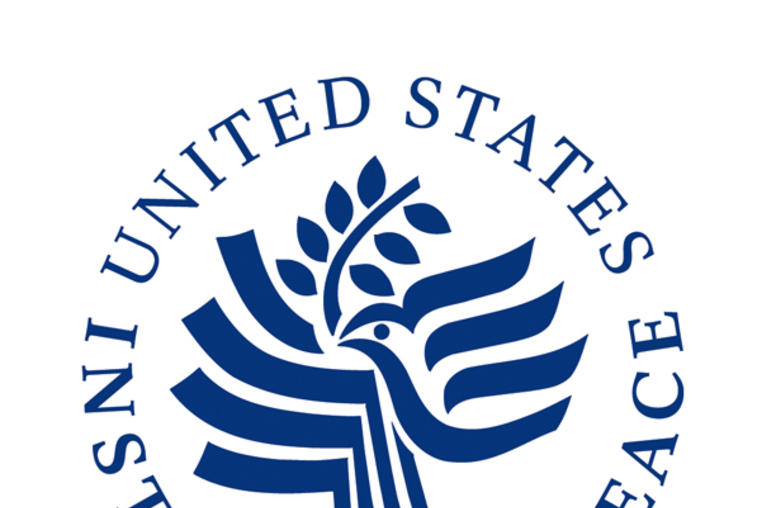
Eye of the Hurricane: Liberia and Instability in West Africa
As armed conflict continues to spread in West Africa, what are the possible pathways to peace and stability in the region? What role does Liberia play in this problem? What are the prospects for peace and regime change in Liberia? Can the current instability and ongoing army mutiny in the Ivory Coast be traced to problems in Liberia?
The Palestinian Reform Agenda
The Oslo Accords reached by the Palestine Liberation Organization (PLO) and Israel in 1993-95 ushered into existence the Palestinian Authority and inspired efforts to build autonomous structures for Palestinian self-rule. Since the earliest days of the Palestinian Authority, a varied group of Palestinians has sought to lay the practical foundation for Palestinian statehood through the construction of strong institutions with clear (and generally liberal) legal bases.
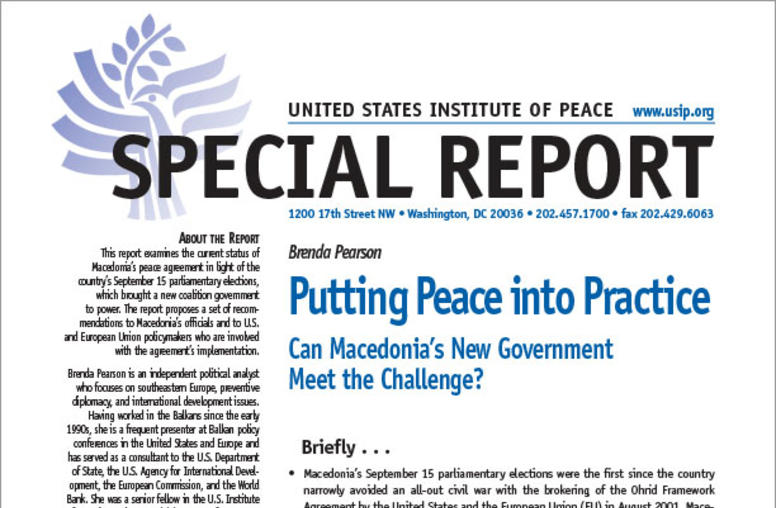
Putting Peace into Practice: Can Macedonia's New Government Meet the Challenge?
Summary Macedonia's September 15 parliamentary elections were the first since the country narrowly avoided an all-out civil war with the brokering of the Ohrid Framework Agreement by the United States and the European Union (EU) in August 2001. Macedonia's future as a unitary state largely depends upon the successful implementation of the Framework Agreement. The underlying problems that sparked the seven-month conflict between ethnic Albanian insurgents and Macedonian security forces...
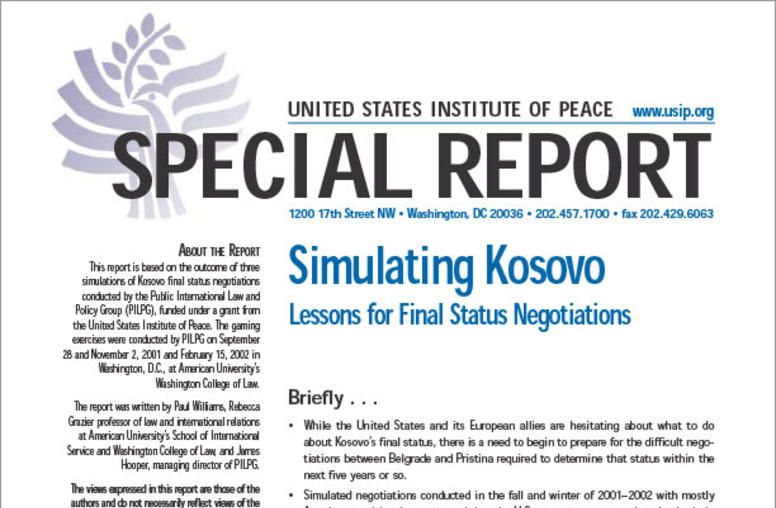
Simulating Kosovo: Lessons for Final Status Negotiations
This report is based on the outcome of three simulations of Kosovo final status negotiations conducted by the Public International Law and Policy Group (PILPG).
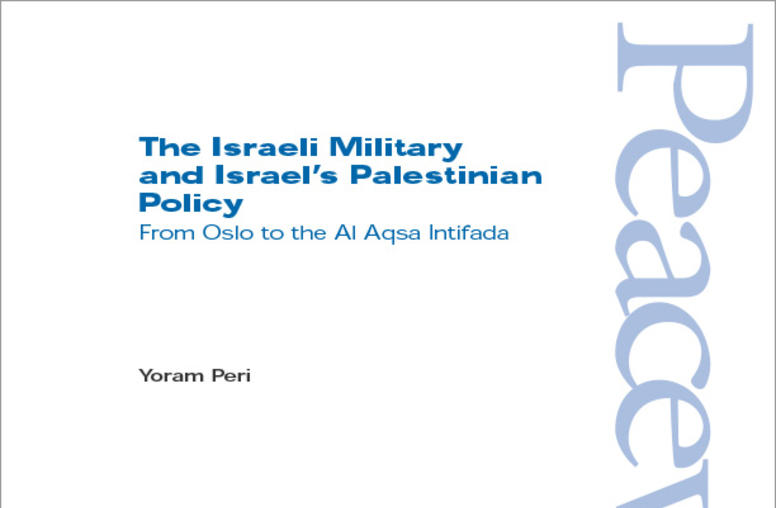
The Israeli Military and Israel's Palestinian Policy: From Oslo to the Al Aqsa Intifada
Peri’s account of Israel’s travails is the broader lesson about what can happen to a democratic political system over decades of constant warfare of greater or lesser intensity. Perhaps inevitably, military leaders, active or retired, acquire great public prominence, while civilian politicians, nominally their superiors shrink in perceived stature. In Israel it has become more and more difficult for either major political party to achieve political success without having a bevy of retired gen...
Truth Commission: Sierra Leone
Truth Commission: Truth and Reconciliation Commission Duration: 2002 – 2004 Charter: The Truth and Reconciliation Act 2000 Commissioners: 7 Report: Public report
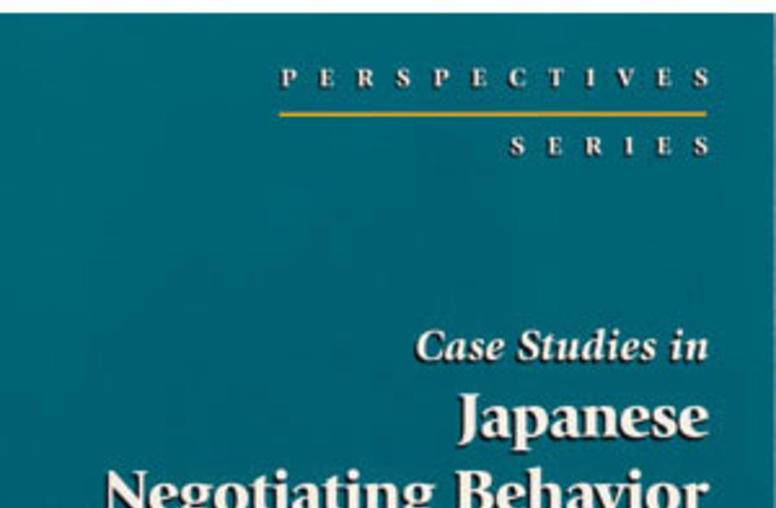
Case Studies in Japanese Negotiating Behavior
This volume explores four recent U.S.–Japanese negotiations—two over trade, two over security-related issues—looking for patterns in Japan’s approach and behavior.
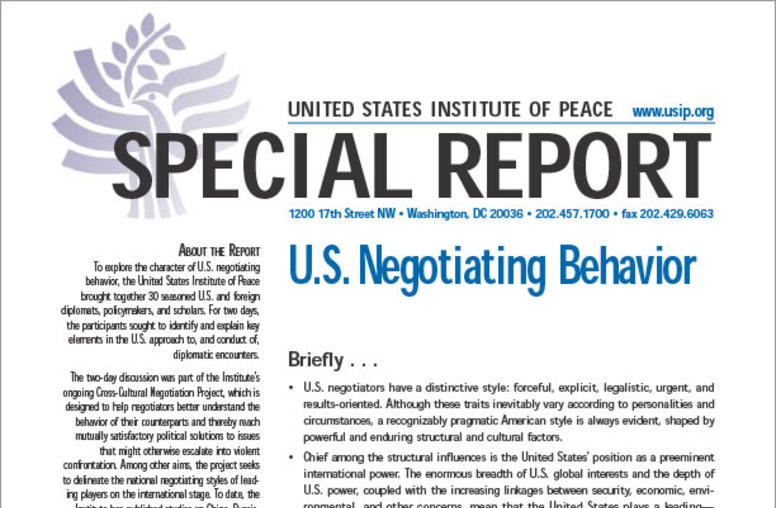
U.S. Negotiating Behavior
Summary U.S. negotiators have a distinctive style: forceful, explicit, legalistic, urgent, and results-oriented. Although these traits inevitably vary according to personalities and circumstances, a recognizably pragmatic American style is always evident, shaped by powerful and enduring structural and cultural factors.
Peace Agreements: Democratic Republic of the Congo (DRC)-Rwanda
Peace Agreement Between the Governments of the Republic of Rwanda and the Democratic Republic of the Congo on the Withdrawal of the Rwandan Troops from the Territory of the Democratic Republic of the Congo and the Dismantling of the Ex-FAR and Interahamwe Forces in the Democratic Republic of the Congo (DRC) (07-30-2002) Posted by USIP Library on: September 23 2002 Source Name: Text received via e-mail from the Republic of South Africa, Department of Foreign Affairs
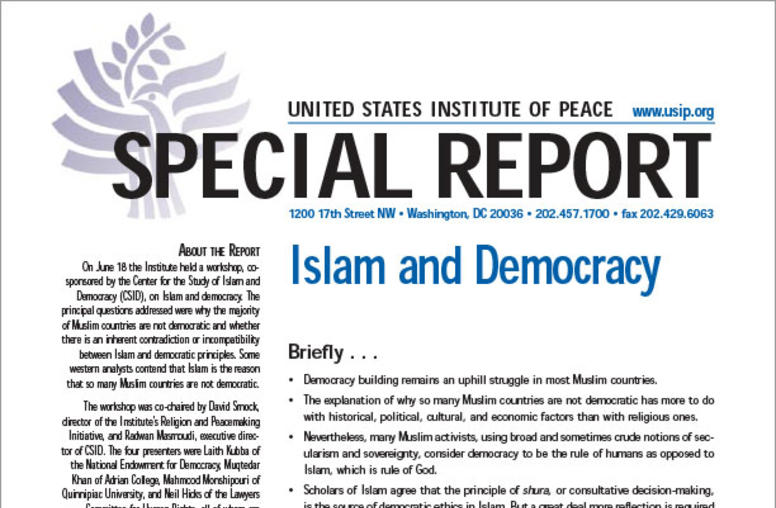
Islam and Democracy
Summary Democracy building remains an uphill struggle in most Muslim countries. The explanation of why so many Muslim countries are not democratic has more to do with historical, political, cultural, and economic factors than with religious ones. Nevertheless, many Muslim activists, using broad and sometimes crude notions of secularism and sovereignty, consider democracy to be the rule of humans as opposed to Islam, which is rule of God.